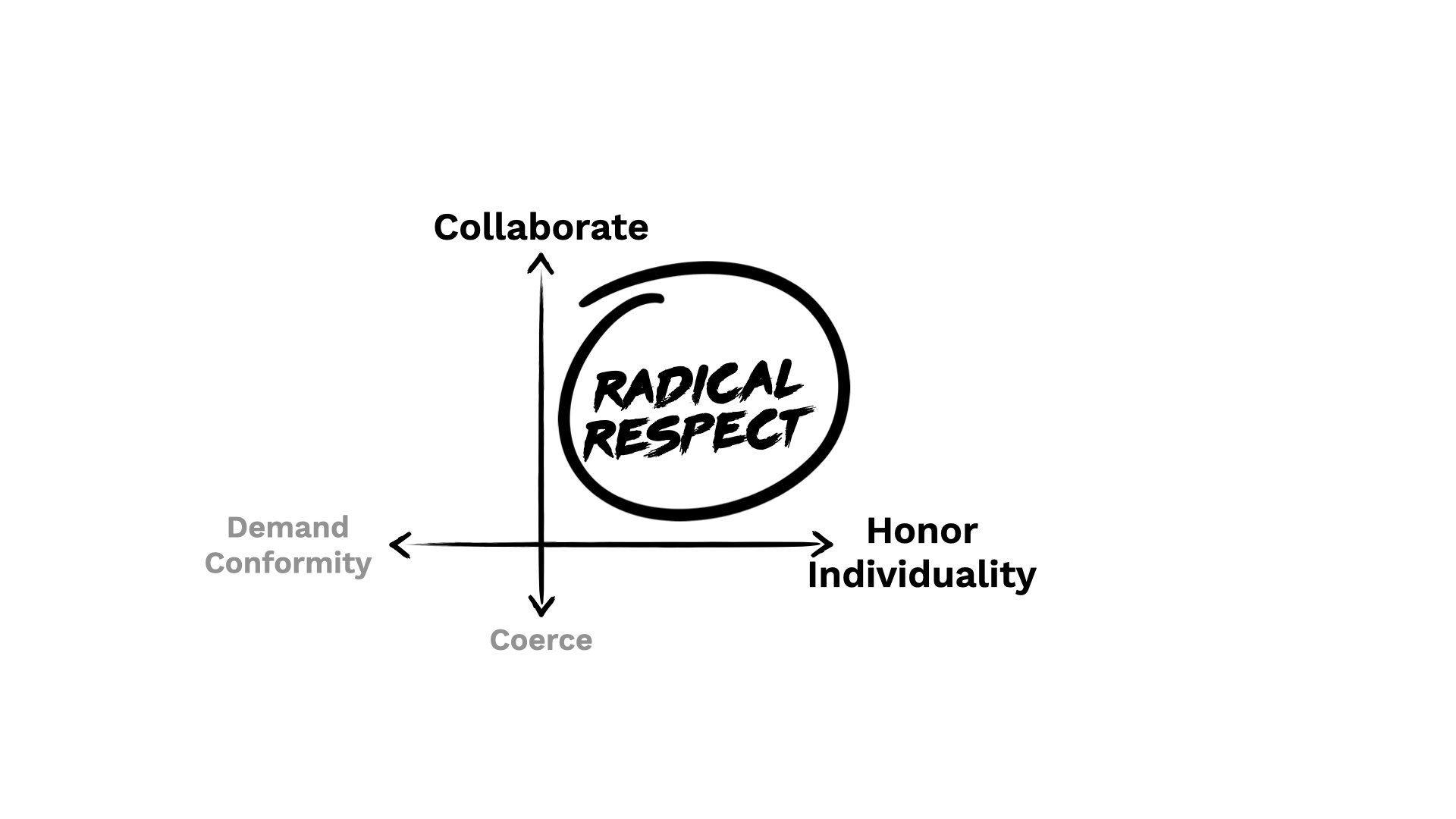What is Radical Respect?
Radical Respect describes the culture in workplaces that honor everyone’s individuality, rather than demanding conformity; and that optimize for collaboration, not coercion. What makes it radical is that it rarely occurs.
Collaborate
Collaboration is essential to any great human accomplishment. Designing organizations that promote healthy collaboration requires proactive efforts to combat coercive behaviors from individuals and groups, such as arbitrary, ego-driven, fact-ignoring biased decision-making, bullying, harassment, and physical violence. When we build management systems that put checks and balances on the power of leaders, they can be held accountable for their behavior and their results. Employees are not silenced.
There is growing consensus that coercion, even by otherwise visionary leaders, neither gets the best results out of people nor generates the innovation necessary to thrive in the modern economy.
Honor Individuality
If we want to benefit from each person we’re working with bringing their full potential to our collaborative efforts, we need to honor one another’s individuality rather than demanding conformity. None of us except actors can do their best work while pretending to be somebody they aren’t. Yet too often we look for “culture fit” rather than “culture add” when we hire, making it difficult for our organizations to evolve, and excluding people who could make an important contribution. We often believe we want people who “think different,” but we’re more likely to punish outliers. Telling people to bring their best to work while discouraging them from being their true selves at work seems obviously ridiculous. But we do that all the time, usually unconsciously.
Successful collaboration requires diversity of thought and experience. Part of the benefit of collaboration is that “many hands make a light load.” But the more important benefit is that it allows us to challenge each other because each of us has a different point of view, different life experiences. If we were all exact clones, we’d lose that benefit.
This seems so simple, so obvious. Why then is the combination of optimizing for collaboration and honoring individuality so rare that I dub it radical? What gets in the way? What can we do to make it less rare? Let’s start by identifying what moves us in the wrong direction.
++++
Wesley Faulkner and I discuss this passage in Episode 4 of our Just Work podcast. You can listen to it where you usually listen to podcasts, or here: https://www.justworktogether.com/podcast-season-2.

